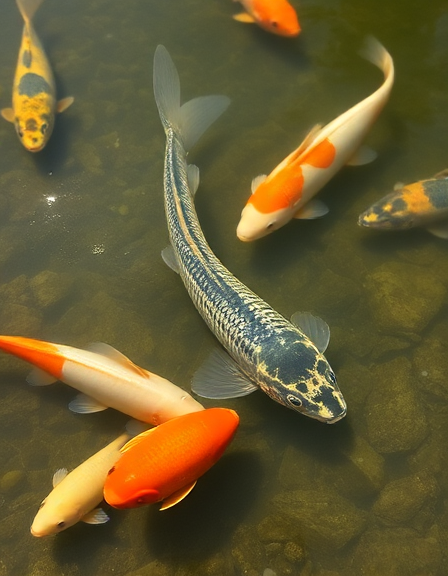Understanding organic freshwater aquaculture
0 reviews
Chapters
6
Language
English
Genre
Published
April 13, 2025
Synopsis
That sounds like a great book idea! Here’s a breakdown into 10 chapters: Understanding Organic Freshwater Aquaculture 1. Introduction to Organic Freshwater Aquaculture Definition and importance Differences between organic and conventional aquaculture Benefits of organic fish farming 2. Water Quality and Management Understanding freshwater ecosystems Physicochemical parameters of water Natural ways to maintain water quality 3. Selecting Suitable Fish and Aquatic Species Native vs. non-native species Best fish species for organic aquaculture Integrating aquatic plants and other organisms 4. Pond Design and Construction Natural pond setup vs. artificial systems Soil quality and water retention Eco-friendly pond management 5. Organic Fish Nutrition and Feeding Strategies Natural food sources in ponds Organic feed formulations Avoiding synthetic additives 6. Health Management and Disease Prevention Common diseases in freshwater aquaculture Natural treatments and herbal remedies Biosecurity measures in organic farming 7. Breeding and Reproduction Techniques Natural breeding methods Larval rearing and juvenile care Ethical considerations in breeding 8. Sustainable Aquaponics and Polyculture Systems Integrating fish and plant farming Symbiotic relationships in aquaponics Examples of successful polyculture setups 9. Organic Certification and Market Opportunities Steps to obtain organic certification Understanding consumer demand Marketing strategies for organic fish products 10. Future of Organic Freshwater Aquaculture Challenges and opportunities Technological advancements Role of research and policy in sustainable aquaculture
Create Your Own Book
Inspired by what you've read? Turn your ideas into reality with FastRead's AI-powered book creation tool.
Start Writing Now